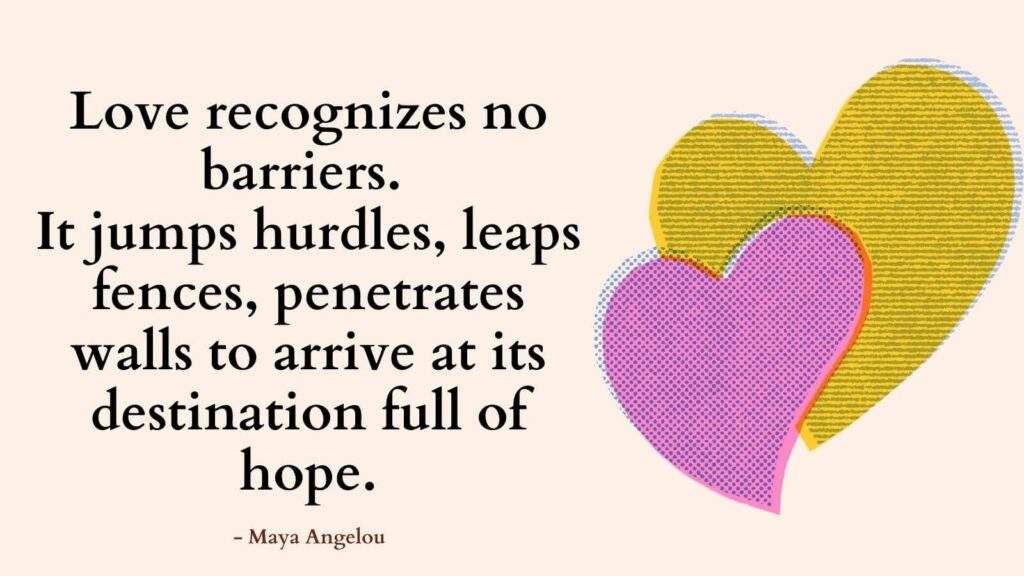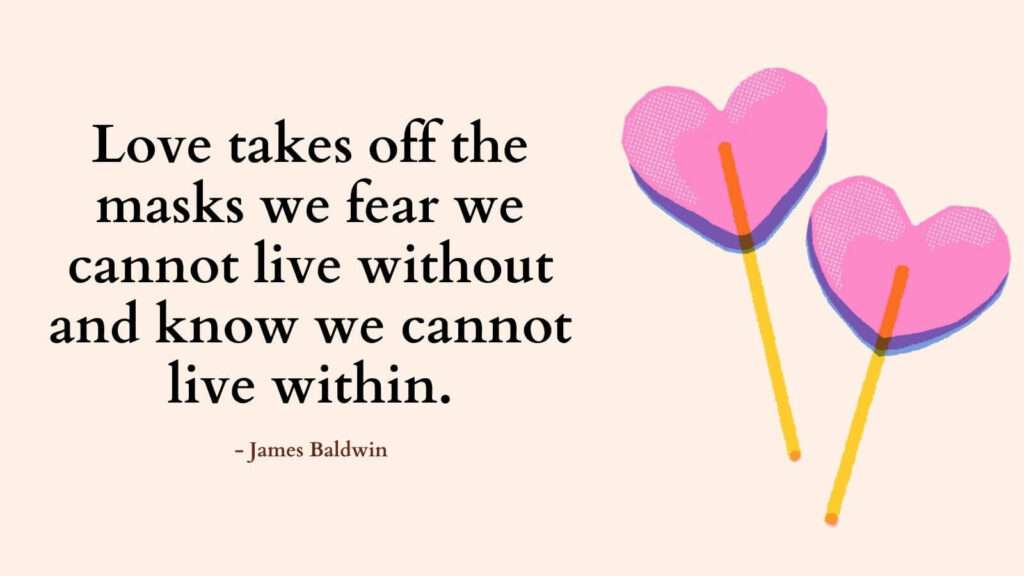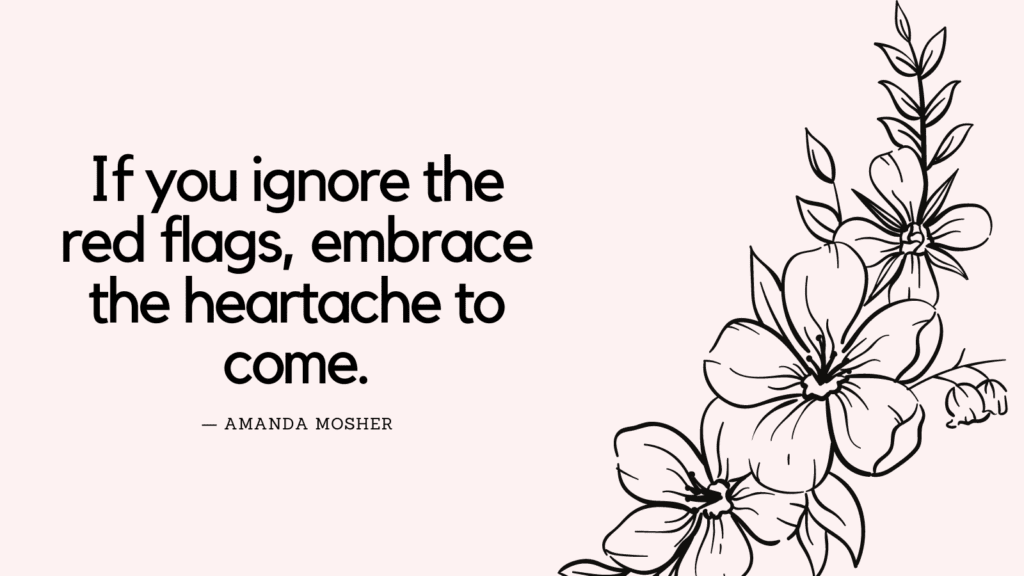This post contains some of the best emotional intimacy quotes.
What Is Emotional Intimacy?
Emotional intimacy refers to the deep emotional connection and closeness that individuals share with each other.
It involves a sense of trust, vulnerability, and openness in expressing one’s true thoughts, feelings, and desires without the fear of judgment.
Emotional intimacy goes beyond surface-level interactions and allows individuals to feel understood, supported, and validated by their partners or close friends.
Here are some key components of emotional intimacy:
1. Trust: Trust is the foundation of emotional intimacy. It involves feeling secure and confident in sharing personal information, knowing that it will be respected and kept confidential.
2. Vulnerability: Emotional intimacy requires a willingness to be vulnerable and open up emotionally. This means sharing your fears, insecurities, and past experiences without holding back.
3. Empathy: Emotional intimacy involves being able to understand and empathize with the emotions and experiences of your partner or friend. It requires actively listening, validating their feelings, and offering support.
4. Communication: Effective communication is crucial for building emotional intimacy. It involves expressing oneself honestly and respectfully, actively listening to the other person, and being receptive to their perspective.
5. Mutual respect: Emotional intimacy thrives when there is mutual respect between individuals. Respecting each other’s boundaries, opinions, and autonomy builds a strong foundation for emotional connection.
6. Emotional support: Emotional intimacy is fostered when individuals provide support, encouragement, and reassurance to each other during difficult times. It involves being there for each other and offering empathy and understanding.
Emotional Intimacy Quotes
1. “Emotional intimacy is what allows you to open up to your loved one and tell them things about yourself that you would not share with others. It is the feeling of trust and acceptance that you share, and you cannot have with a stranger.” – Taylor Snow
2. “True emotional intimacy happens when you feel safe and accepted in your marriage and are free to share your thoughts and feelings with your partner.” – Taylor Snow
3. “It is important to note the difference in intimacy preferences as well. Men tend to seek out physical intimacy, whereas women often crave emotional intimacy . For men, the physical connection they feel during sex is their way of expressing their emotions. Women, on the other hand, are more inclined to want to spend time talking to feel close to their partner. Much like the various types of intimacy, these preferences are important to understanding your spouse and building a better relationship.” – Taylor Snow
4. “Physical and emotional intimacy in a marriage goes together. While unmarried people can have sex without emotional intimacy, and often do (e.g. one-night stands or no strings attached flings) they may also have an emotional connection as well, (e.g. close friends who ‘hook up’). However, it is difficult to achieve sexual intimacy within a marriage without emotional intimacy because the two go hand-in-hand… In a long-term relationship, your physical connection relies on you first building an emotional one.” – Taylor Snow
5. “While emotional intimacy is often connected to physical intimacy, it is not dependent on it. There are many other ways to physically express your feelings besides sex.” – Taylor Snow
Related: Top 50 Would You Rather Dating Questions To Increase Emotional Intimacy
6. “A dismissive avoidant love style is characterized by being distant and detached in relationships. People with this attachment style often have strong personalities and come across as independent and selfsufficient. But this strength is often just a cover for their inability to share feelings and express their emotions. People with this love style often withdraw at the first sign of conflict, cutting themselves off from any chance at true emotional intimacy.” – Janis Bryans
7. “Entering a healing relationship with a securely attached partner can be a frightening experience for people suffering from insecure attachment styles. Many of these people, particularly those with an avoidant attachment style, struggle to open up and connect with others, and the idea that a partner may seek emotional intimacy can be overwhelming.” – Janis Bryans
8. “Distancers. Who are they? What are they? They are men and women. They are those who completely avoid romantic relationships, or those who keep their partners at an emotional arm’s length. They can be young, middleaged, or old. They may either end their romantic relationships when things start getting serious, or they keep changing partners, looking for the perfect mate. Many distancers are in committed relationships but they still distance themselves from their partners emotionally or sexually. Some distancers make themselves too busy with work, family, friends, or activities to be available to their partner. But in spite of their many forms, all distancers have two things in common: they all have a great longing for intimacy and an equally great fear of intimacy.” – Dusty Miller, Ed.D.
9. “Even with the promise that you can survive the vulnerability of opening to love, you may feel skeptical about trying something new. You may believe there’s nothing new for you to learn about finding and keeping the love and intimacy you want.” – Dusty Miller, Ed.D.
Related: Emotional Intimacy Test (+13 Tips On How To Increase Emotional Intimacy In A Relationship?)
10. “Men who are labeled “commitment phobic” or “love-avoidant” are caught in the glare of floodlights while women who distance get lost in the shadows. Just as it took a long time to become public knowledge that men as well as women can be victims of childhood abuse and violence, so too it has been long overlooked that both men and women distance themselves from intimacy.” – Dusty Miller, Ed.D.
11. “Women and men both yearn for intimacy and deeper connection, and both genders can create disabling distancing patterns in their couple relationships. Without adequate information to help them name, tame, and transform the runaway self, both male and female distancers often convince themselves that the love they have is as good as it’s going to get.” – Dusty Miller, Ed.D.
12. “The distracted distancer appears in many manifestations. The distracted distancer stays too busy to spend quality time with her (or his) partner, thus avoiding couple closeness and intimacy. Distracted distancers may be superproviders, focusing all their efforts on accomplishing necessary tasks: parenting, working, keeping up the home, doing community service, and so on. When the distracted distancer’s efforts are on behalf of the family, he or she can appear to be very committed to the well-being of the partner, even though the couple relationship is getting shortchanged.” – Dusty Miller, Ed.D.
13. “The distracted distancer neglects the couple’s need for closeness and intimacy, engaging full tilt in a wide variety of other activities. Distracted distancers put up an invisible smoke screen of activities between themselves and their partners, performing very subtle avoidance maneuvers in their preoccupation with children, work, family, friends, community service, faith-based activities, self-improvement… the list can go on and on. Distracted distancers can find time for everyone and everything, except for their partners. Note: In this distancing category, women are in the majority.” – Dusty Miller, Ed.D.
14. “Distracted distancers may avoid intimacy by becoming workaholics, others by following creative pursuits, and still others by giving all they’ve got emotionally to their children while virtually ignoring the emotional needs of their partner. If we could watch these distancers in cartoon form, their time together as a couple would look like someone picking up a meal at the drive-up window of a fast-food restaurant.” – Dusty Miller, Ed.D.

15. “There are a myriad of reasons why each of us takes the time we do to finally change our unhappiness in our relationships. It doesn’t matter if you’re sixteen or sixty—you can change your patterns if you want to. But to help you find a more self-compassionate way to examine your past patterns, let’s first take a look at some of the reasons why it’s taken this long. Some of your past obstacles to change may lie within your own personality, while others may have come from bad advice and incomplete solutions to solving the dilemma of intimacy.” – Dusty Miller, Ed.D.
Related: Best 21 Couples Journal Prompts To deepen Your Intimacy
16. “Oversimplifying love’s complexity accounts for many failed attempts to find and keep true intimacy. Many of the obstacles to happiness in love relationships arise from distracting or incomplete solutions.” – Dusty Miller, Ed.D.
17. “Sometimes, couples are advised to try indirect, strategic communication. Strategic communication allows the couple to avoid being direct and honest about anything that potentially could open up uncomfortable feelings or conflict. Couples who try to protect their intimacy engage in a sort of chess game that maneuvers the conversations around important issues and feelings rather than discussing those issues. However, believing that the relationship will survive by using indirect, manipulative communication or by avoiding problematic issues can be as unhealthy and shortsighted as the “open honest communication” method.” – Dusty Miller, Ed.D.
18. “Men were still viewed as the distancers in intimate relationships by the women’s liberation generation in the 1970s and ’80s. They were often portrayed as hopelessly defective in the relationship department. Although the ’70s produced a counterbalancing image of more competent women, the male stereotype merely shifted slightly, morphing into Robert Bly’s Iron John (1990). This version of maleness promoted an image of macho virility that perpetuated the myth of male incapacity for deep emotional intimacy with women and children.” – Dusty Miller, Ed.D.
19. “Many men long for love and intimacy in couple relationships. If all those men from Mars just wanted to get laid, there would be easier ways to go about it than committing to a long-term, live-in relationship that usually requires monogamy, child-rearing, and a promise to remain loving through sickness and health.” – Dusty Miller, Ed.D.
20. “Focusing too narrowly on sexual satisfaction is another mistake that can interfere with genuine intimacy. Both men and women can experience satisfying sex but still be lonely distancers. Conversely, some people can achieve deep levels of intimacy even when the relationship is no longer sexual.” – Dusty Miller, Ed.D.
21. “It’s easy to become confused about the difference between sex and intimacy because the word “intimacy” is frequently used as a euphemism for sex. Many layers of distancing behavior can be buried under the belief that the problem with intimacy is all about sex. “She won’t open up with me” is the frequent complaint of the male partner who feels shut out sexually but doesn’t fully comprehend the underlying complexity of the problem.” – Dusty Miller, Ed.D.
Related: Affection Quiz (+3 Strategies To Increase Affection In Your Relationship)
22. “Parenting is a very demanding and very important part of adult life for many women and men, but, unfortunately, it can seriously erode couple intimacy. When professionals or friends collude in keeping the focus entirely on parenting issues, the underlying distancing in the couple’s behavior can escape detection and leave one or both partners trapped in continuing loneliness.” – Dusty Miller, Ed.D.
23. “Another variation in eroded intimacy occurs when one parent becomes jealous of the other’s closeness with the children, which sometimes leads both parents to become distancers. Another type of erosion in the couple relationship can take place when both parents are so consumed with parenting their children that they have no time left over to nurture themselves as a couple. Still another scenario happens when the parents engage in major battles around childrearing issues, and by so doing demolish their capacity to feel tenderness and affection for each other.” – Dusty Miller, Ed.D.
24. “Too much or too little focus on the past can also lead to intimacy failures. Sometimes, the past can obstruct necessary repairs to current intimacy when there is denial of its impact. On the other hand, experiences from the past can remain so central to someone’s emotional life that the current relationship (or potential partner) becomes eclipsed.” – Dusty Miller, Ed.D.
25. “Some people distance from intimacy because they haven’t been willing to look at their past relationships. They haven’t come to terms with either the pain of the past or its lessons. Other people distance from relationships in the present by focusing too much of their attention and energy on their past.” – Dusty Miller, Ed.D.
26. “Currently, perhaps the most common reason for intimacy to suffer or vanish entirely is an exclusive focus on someone’s history of past trauma and the resulting issues. Talk shows, professional helpers, friends, and family members perpetuate the myth that the trauma must be resolved before the relationship problems can be addressed.” – Dusty Miller, Ed.D.
Related: Best 5 Books About Jealousy In A Relationship
27. “Becoming more aware of yourself in noncouple relationships could help you overcome your challenges with intimacy. Developing your awareness about yourself in how you connect to your friends, family, children, parents, siblings, coworkers, and others is an important part of learning from your successes. As you become increasingly aware of who you are in various relationships, you may see some very consistent patterns or you may notice that you have more varied relational styles depending on the person you’re thinking about.” – Dusty Miller, Ed.D.
28. “There are plenty of reasons why you might want to end the journey you’ve been on right now and try to convince yourself you can live with everything in your relationship domain staying the same. As you know, the forces that shape our individual ways of approaching intimacy and challenge our comfort with intimacy are very powerful. It makes sense that if we risk new ways of connecting, we risk being vulnerable to old pain. We could be badly disappointed, hurt, betrayed, or trapped all over again. The temptation to stay away from such risks is often very strong.” – Dusty Miller, Ed.D.
29. “Don’t settle for someone you don’t feel really comfortable with just to have a relationship. You’ve waited quite a while to approach this world of intimacy, so take your time. Trust yourself to know when a relationship feels really good to you. And keep using your support people to help you with this. They can help you determine what’s working in your new relationship and what’s not.” – Dusty Miller, Ed.D.
30. “It’s critically important for you to notice what kind of signals or messages you’re sending the person you’re just inching toward or getting involved with. Are you promising more availability than you actually will be able to deliver? Do you appear to be confident and relationally relaxed when in fact you’re struggling with your fear of intimacy? It’s important to be as open with your partner as is possible this time.” – Dusty Miller, Ed.D.
Related: Conflict Resolution In Marriage (+Marriage Conflict Resolution Worksheets PDF)
31. “The misconception that not much good comes from being close to a partner can appear in many guises, like avoiding quality time, changing the topic when subjects get too personal, or dismissing compliments and not returning them.” – Holly Parker
32. “Of course, it’s not a big deal if this kind of disconnection only happens every once in a while; even the most emotionally available folks pull away a bit and create emotional space sometimes. But if a response that denies or blocks greater intimacy is the go-to strategy for your partner more often than not, then this is a problem.” – Holly Parker
33. “If you believe you’re seen in a positive light, you’ll be more likely to experience intimacy, value your partner, and be more satisfied with the relationship over the long haul. But the opposite is also true. If you believe your spouse sees you in a bad light, a division is likely to develop. Your feelings of security and intimacy are compromised and ultimately there’s a greater chance of divorce.” – Holly Parker
34. “Not surprisingly, research shows if you can’t share what’s going on in your life, you’ll experience less intimacy and less overall happiness together.” – Holly Parker
35. “While trust promotes actions that foster connection and advance intimacy, spurring us on to take risks and be open, distrust shuts us down, closes the gate in our heart, and makes it difficult, if not impossible, to move closer.” – Holly Parker
How to Build Emotional Intimacy?
Building emotional intimacy takes time and effort from both parties involved. Here are a few suggestions to cultivate emotional intimacy:
1. Foster open and honest communication: Create a safe space for discussions and encourage each other to share openly.
2. Practice active listening: Pay attention to what your partner or friend is saying, show empathy, and validate their feelings.
3. Share your experiences and emotions: Be willing to share your own thoughts, feelings, and experiences, allowing yourself to be vulnerable.
4. Prioritize quality time together: Dedicate uninterrupted time to connect and deepen your emotional bond. This can involve activities that you both enjoy or simply having meaningful conversations.
5. Show appreciation and gratitude: Express gratitude for each other’s presence, support, and the efforts made to strengthen the relationship.
FREE Relationships Worksheets PDF
Conclusion
Emotional intimacy is an ongoing process that requires patience, understanding, and effort from both individuals involved.
It can greatly enhance the depth and satisfaction of your relationships.



